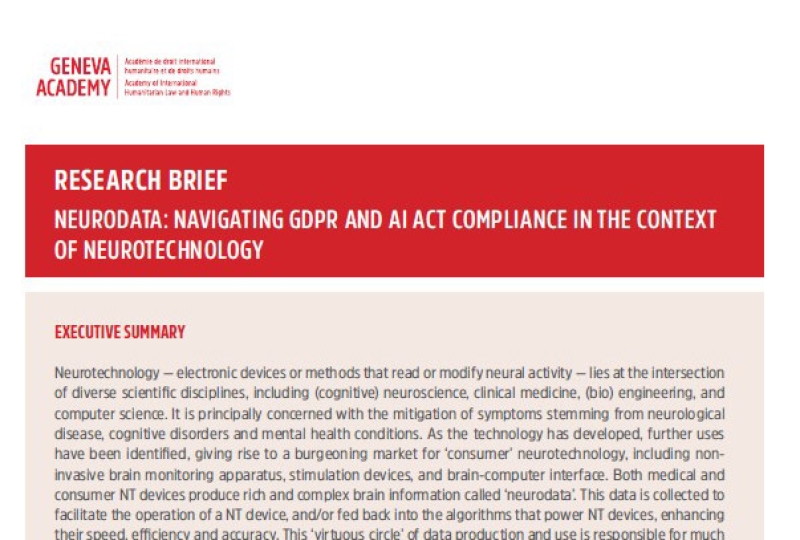21 January 2025
Advances in neurotechnology (NT) have driven the growing collection and processing of neurodata – data related to the structure and functioning of the human brain – across various societal domains. The development and use of NTs heavily depend on neurodata to ensure device functionality (e.g., neurofeedback monitors or brain-computer interfaces) and to enhance performance by refining AI algorithms integrated into these devices.
In our new Research Brief, ‘Neurodata: Navigating GDPR and AI Act Compliance in the Context of Neurotechnology’, Timo Istace highlights the delicate balance needed between leveraging neurodata for progress and protecting individual rights. He notes that ‘the indispensability of neurodata to fuelling progress in the sector needs to be balanced against the risks to individual users. Neurodata is a highly sensitive and personal form of data, akin to genetic data. Its combined features – including its informational richness (extending to cognitive processes), predictive potential, and risk of involuntary disclosure – warrant significant scrutiny to preserve individuals’ privacy, particularly mental privacy.’
Timo further explains, ‘Data protection regulations are crucial in addressing these concerns. The sensitive nature of neurodata raises questions around whether current regulatory frameworks offer adequate protection against incursions on mental privacy and the safeguarding of neurodata. While no supranational regulation specifically addresses neurodata, regional instruments like the EU’s General Data Protection Regulation (2018) provide a framework for assessing protection measures.’
This paper evaluates the effectiveness of the GDPR in mitigating risks associated with the distinctive nature of neurodata, with the goal of safeguarding neuroprivacy and mental privacy in the context of emerging NTs. It analyzes the scope and applicability of the GDPR, examines the challenges of ensuring robust protection during the collection, processing, storage, and transfer of neurodata, and considers how the recent EU AI Act might complement or reinforce GDPR safeguards.









